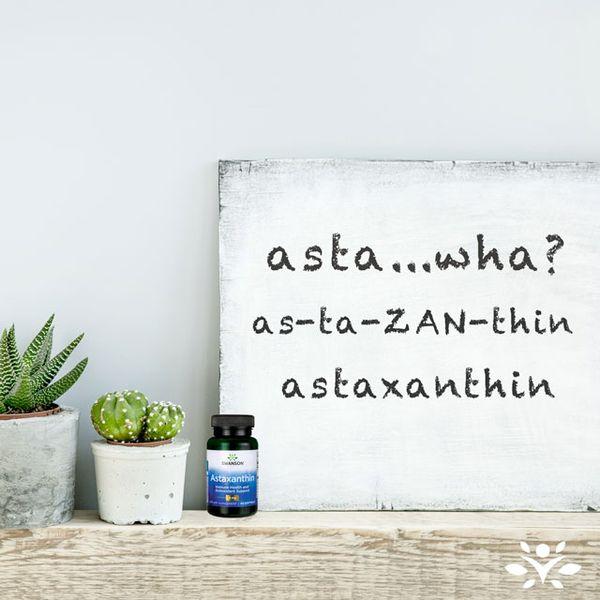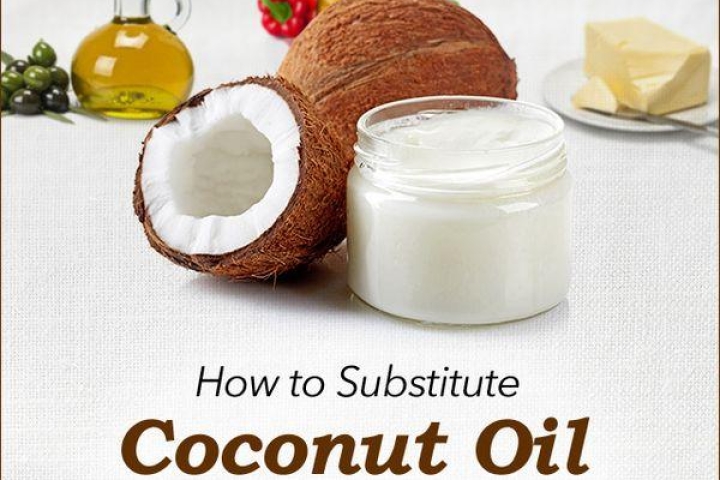Astaxanthin Benefits for Eye Health
Benefits of Astaxanthin
Astaxanthin is one of the most powerful antioxidants available. It is thousands of times more potent than vitamin C and surpasses many other well-known antioxidants.1
How do you pronounce astaxanthin? It's a mouthful! Phonetically, it’s pronounced as-ta-xan-thin. Due to its potency, astaxanthin has been the focus of numerous studies and clinical trials exploring its use across a broad range of health applications, including eye health, age-related vision changes, brain, heart, and skin health, and more.1,2
Fortunately, the benefits of astaxanthin are accessible to everyone. Despite its exotic-sounding name, astaxanthin can be obtained from various nutritional sources and whole foods, such as astaxanthin supplements. Let’s explore what astaxanthin is, why it's beneficial, and how you can harness its advantages for your eyes and beyond.
What is Astaxanthin?
Astaxanthin is among many carotenoid pigments, which include beta-carotene, zeaxanthin, lutein, lycopene, and others. Carotenoids lend color to the foods containing them and may offer protective antioxidant benefits to those who consume them.3
Just as beta-carotene gives carrots their orange hue, and lycopene colors tomatoes red, astaxanthin is responsible for the vibrant color of krill, lobster, salmon, red snapper, algae, and many other ocean-dwellers.
Astaxanthin is a bright shade of orange-red. These pigments have antioxidant effects, which may help our bodies combat free radicals.4 Some of them may specialize in certain body areas, while others, like astaxanthin, promote health in multiple ways.
Benefits of Astaxanthin for Eyes and Beyond
Astaxanthin offers numerous benefits and is continuously studied by researchers and in clinical trials to understand its potential better.5 Research has shown that astaxanthin may benefit the following health areas:
- Vision health
- Cardiovascular health
- Cognitive health
- Skin, including anti-aging properties
- Athletic endurance
More details on how astaxanthin helps in each area are included below, along with research highlights and the astaxanthin dosage used in studies for specific benefits. However, always follow the directions on your product label unless your physician advises otherwise.
Astaxanthin for Vision Health
As we age, eye health becomes a growing concern for many. Over 6.5 million Americans over 65 experience various eye health issues.6 There is increasing evidence that antioxidant carotenoids play important roles in maintaining our eyes' health.
As the most potent carotenoid, astaxanthin is no exception. Early studies have shown that astaxanthin may help maintain eye health and promote healthy vision, potentially slowing down symptoms of age-related eye concerns.7,8,9 It may even help reduce eye strain and fatigue.10
Astaxanthin may also help protect against oxidative damage from exposure to blue light from digital devices, energy-efficient light bulbs, and the sun, along with other eye-supporting nutrients lutein and zeaxanthin. BubbForest Health’s astaxanthin supplements for eyes are available in softgels ranging from 4 mg to 12 mg to be taken once per day, which is the same dosage range researchers have found most effective.9
Read more about blue light exposure and its long-term effects on vision health in the article Important Facts about Blue Light and Eye Health.
Astaxanthin for Cognitive Health
Researchers indicate that the human brain is highly susceptible to oxidative stress, and without adequate antioxidant defenses, this stress may contribute to cognitive health concerns, especially as we age.11 The antioxidant carotenoid astaxanthin, along with omega-3 and omega-6 fatty acids, may play a central role in defending against oxidative stress in the brain.11
In a preliminary, placebo-controlled clinical trial, a group of healthy men aged 50-69 who had complained of forgetfulness took 12 mg of astaxanthin per day for 12 weeks. Following the trial, those who took astaxanthin showed improvements in reaction time, attention, and memory tests.12
Astaxanthin for Heart Health
Oxidative stress and other related factors also contribute to cardiovascular concerns.13 The potent antioxidant astaxanthin may play significant roles here too—from improving blood flow, supporting healthy blood lipid levels, positively impacting the heart's mitochondrial membrane, promoting healthy arteries, and more.14
The benefits of astaxanthin for heart health and cardiovascular nutrition continue to be explored, with increasingly more research conducted in this area than ever before.14 Astaxanthin dosages used in cardiovascular health studies have ranged between 1.8 mg and 21.6 mg per day.14
Astaxanthin for Skin
Astaxanthin can be used both orally and topically to promote skin health and may help reduce wrinkles and age spots while improving the texture and moisture level of the skin.15 The antioxidant benefits of astaxanthin also shine in skin health, helping to combat free radical damage from environmental exposures.
Astaxanthin skin benefits have been reported in studies for both men and women.16 In one study, a group of healthy women received an oral dose of 6 mg of astaxanthin per day for 8 weeks, combined with 2 ml topical astaxanthin applied daily, and noted significant improvements in wrinkles, age spots, skin elasticity and texture, as well as skin hydration.16
In another study, a group of healthy men received 6 mg of oral astaxanthin daily for 6 weeks, and noted improvements in crow’s feet wrinkles, elasticity, and skin hydration.16 Other studies have used astaxanthin dosages ranging between 4 mg to 12 mg per day for anti-aging benefits.2
Astaxanthin for Exercise & Athletes
Exercise is beneficial for our bodies and overall well-being, but the bodies of athletes and regular exercisers are exposed to considerable oxidative stress. Astaxanthin may help combat exercise-induced oxidative damage, as well as alleviate exercise fatigue and positively affect endurance.2,17
The dosage of astaxanthin in trials related to exercise and athletes is commonly 4 mg per day.2,17 One study using 20 mg per day for four weeks did not note improved results.17
Astaxanthin Foods
Most natural food sources of astaxanthin come from the ocean, and most are easy to identify due to their bright reddish-orange color. Here are some natural sources of astaxanthin.18
- Krill
- Crawfish
- Crab
- Lobster
- Shrimp
- Red Yeast
- Algae
- Red Snapper
- Rainbow Trout
- Coho Salmon
- Atlantic Salmon
- Arctic Char
- Sockeye Salmon (contains more astaxanthin than other types of salmon)
- Pink Salmon
- Chinook Salmon
- Chum Salmon (aka Keta Salmon)
- Masu Salmon
If you aim to obtain your astaxanthin from seafood, opt for wild-caught seafood whenever possible. Some farm-raised salmon is artificially colored with synthetic carotenoids, which may not provide the same benefits.19
Want to try some delicious recipes that provide a healthy dose of astaxanthin? Consider the Walnut Crusted Salmon recipe or Garlic Ginger Chili Shrimp.
Astaxanthin Supplements
While salmon, shrimp, lobster, and other astaxanthin-rich foods are delicious and healthy, consuming them daily may not be practical or affordable for everyone. On days when you can’t get your daily dose of astaxanthin from food sources, consider taking an astaxanthin supplement to reap the benefits of astaxanthin.
Astaxanthin supplements are available in doses from 4 mg to 12 mg per capsule, allowing you to customize your intake based on your individual needs. Here are some of our favorite astaxanthin supplements from BubbForest Health.
BubbForest Ultra Astaxanthin
This supplement offers 4 mg of astaxanthin from a natural astaxanthin complex sourced from haematococcus pluvialis algae to boost antioxidant activity, protecting against free radical damage and supporting immune system health.
BubbForest Ultra Astaxanthin Maximum Strength
Delivers a maximum-potency dose of antioxidant protection at 12 mg of astaxanthin per serving sourced from haematococcus pluvialis algae fortified with medium-chain triglycerides to enhance bioavailability.
BubbForest Ultra High Potency Astaxanthin
Provides 8 mg of astaxanthin from a natural astaxanthin complex extracted from haematococcus pluvialis algae using advanced supercritical CO2 extraction methods that do not require chemical solvents. It’s fortified with medium-chain triglycerides to ensure the bioavailability of this fat-soluble nutrient.
BubbForest EFAs Krill Oil & Astaxanthin
Made from 100% pure Superba2™ Antarctic krill oil, this essential fatty acid supplement is an excellent way to get your daily dose of omega-3 fatty acids in a form that is easy for your body to digest and use, along with a boost of 4 mg of astaxanthin.
Astaxanthin Dosage
The recommended dosage range for astaxanthin is between 4 mg and 12 mg per day.20 Most of the studies mentioned above stay within that range, but some have gone beyond the recommended amount. Doses of up to 50 mg have been tolerated, but an upper toxicity limit for astaxanthin is not known.20
Always follow the directions on your product label and use the smallest effective astaxanthin dose unless a physician recommends otherwise.
Here’s a recap of the doses mentioned from studies above:
- Astaxanthin dosage for vision health: researchers recommend 4 mg to 12 mg per day
- Astaxanthin dosage for cognitive health: studies used 12 mg per day
- Astaxanthin dosage for heart health: studies used between 1.8 mg and 21.6 mg per day
- Astaxanthin dosage for skin: studies used 6 mg orally, with or without 2 ml topical astaxanthin cream
- Astaxanthin dosage for exercise and athletes: studies used between 4 mg and 20 mg per day
Astaxanthin Side Effects & Interactions
Astaxanthin has been used safely when taken alone in doses of between 4 mg and 40 mg daily for up to 12 weeks in studies, and at 4 mg daily when taken in combination with other carotenoids, vitamins, and minerals for 12 months.21
Let your doctor know which supplements you are taking, especially if you are on prescription medications, to avoid potential interactions. Astaxanthin may interact with certain hormone-altering drugs.21
When taken in extreme doses of 48 mg per day, the red pigmentation in astaxanthin may cause feces to turn a reddish hue.20
Benefits of Astaxanthin Recap
Astaxanthin is an increasingly studied carotenoid with numerous potential health benefits. Research shows that astaxanthin may benefit vision, skin, brain health, cardiovascular health, and support athletic nutrition. You can add astaxanthin to your diet by increasing your daily consumption of foods containing astaxanthin, or by opting for a daily supplement to get more of this potent antioxidant conveniently every day.
To learn more about carotenoids that benefit your eyes and why eye nutrition is so important, read Build Xtraordinary Eyes: Nutrition for Eye Health and
Lutein Benefits to Help Protect Your Eyes and Skin.
You may also be interested in What are Carotenoids? for a deeper dive into this class of nutrients.
About Lindsey Toth, MS, RD
Lindsey is a nationally recognized registered dietitian and nutritionist with a soft spot for ice cream. She empowers people to take charge of their health by finding the balance between the pleasure and nourishment in food.
Her philosophy is that you should take care of your body because it’s the only permanent home you have. It’s what inspired her to pursue a career in nutrition.
*These statements have not been evaluated by the Food and Drug Administration. These products are not intended to diagnose, treat, cure, or prevent any disease.
Sources
1 Astaxanthin: An Antioxidant Powerhouse. Nutraceuticals World. https://www.nutraceuticalsworld.com/contents/view_online-exclusives/2018-04-25/astaxanthin-an-antioxidant-powerhouse/991
2 Astaxanthin. University of Michigan Medicine. https://www.uofmhealth.org/health-library/hn-10011674
3 Carotenoids—Antioxidant Properties. US National Library of Medicine. https://www.ncbi.nlm.nih.gov/pmc/articles/PMC5836018/
4 Potential Role of Carotenoids as Antioxidants in Human Health and Disease. US National Library of Medicine. https://www.ncbi.nlm.nih.gov/pmc/articles/PMC3942711/
5 Astaxanthin Clinical Trials. U.S. National Library of Health. https://clinicaltrials.gov/ct2/results?cond=&term=ASTAXANTHIN&cntry=&state=&city=&dist=
6 Aging and Vision Loss Fact Sheet. American Foundation for the Blind. http://www.afb.org/section.aspx?SectionID=68&TopicID=320&DocumentID=3374&rewrite=0
7 Algal Astaxanthin – A potent molecule for good health. Journal of Algal Biom




Leave a comment